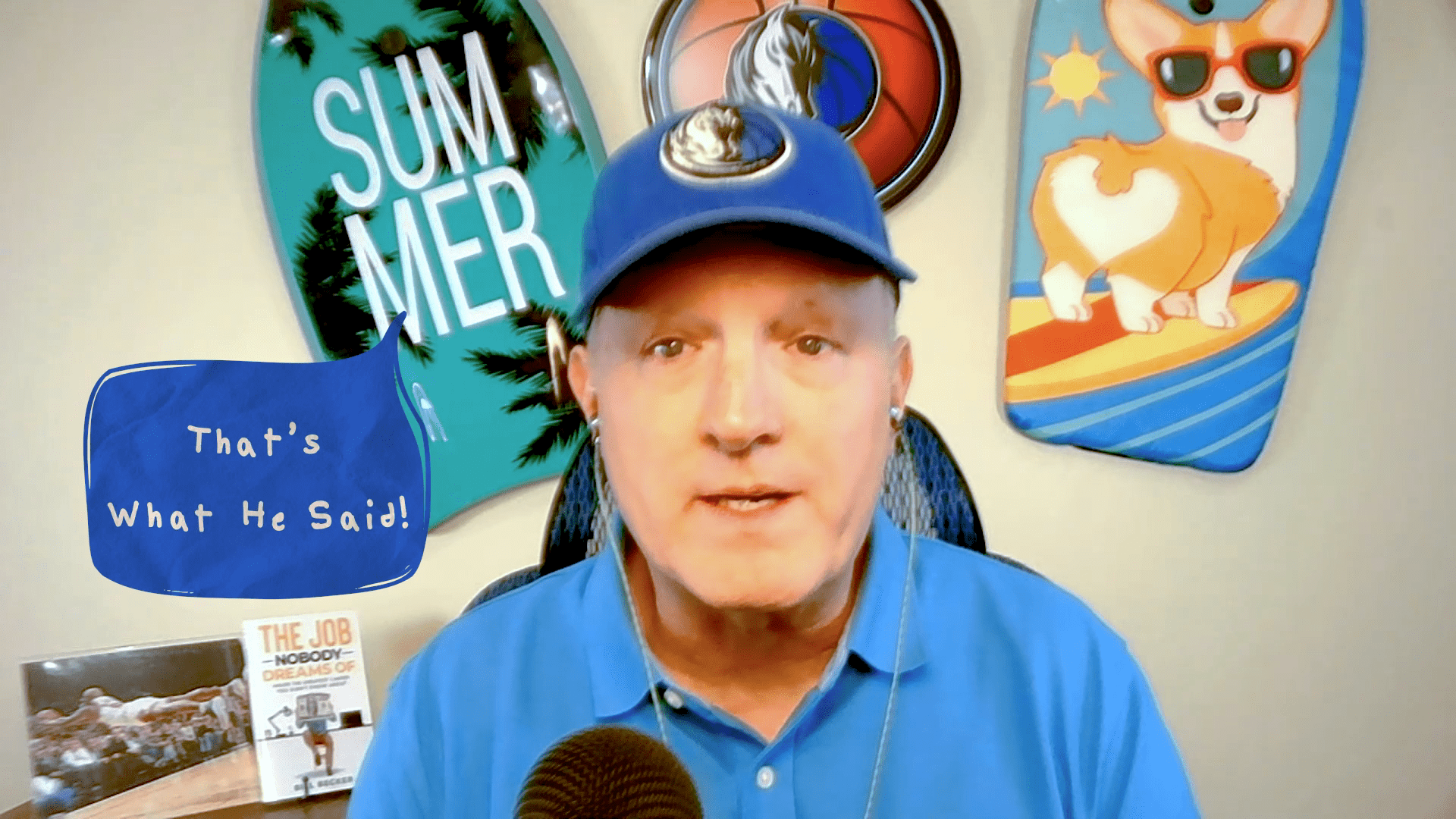Don’t Ever Tell Me What NOT to Do
“Do or Do Not; There is No Try.”
–Yoda, character in movie, The Emperor Strikes Back
HELPFUL OR NOT SO MUCH
Did you stumble over the title of this article, wondering what TO do with that, what it actually means, or if it might even be a typo? Most importantly, was it at all helpful to you in guiding your process of sharing your knowledge with anyone? Maybe, and maybe not.
For over three decades, there has been a formula available to help Subject Matter Experts and Thought Leaders write how-to tips that reflect your expertise. It goes like this:
Tips formula:
Start one sentence with a positive verb, an action word, telling the reader or listener what TO do. A second sentence explains “why” or “how,” with both sentences totaling a maximum of 50 words.
That formula works in writing or speaking your tip while simultaneously serving as a model of a successful tip. It clearly and directly describes what TO do, followed by the second sentence that does, in fact, tell “why” or “how.” There are 34 words in that formula, by the way.
TO DO OR NOT TO DO
Compare your feeling reading this article’s title and then the tip-writing formula. Is one more helpful and clear than the other? You may also see them as no difference at all. Ponder this example. Is one more compelling than the other, or see no difference in effectiveness?
❌ Avoid people who continuously share negative opinions about everything in their life. They can be a buzzkill for any conversation.
✅ Choose people who eagerly offer solutions to challenges and inconveniences they experience. They are likely to improve the world around them, often one person at a time.
_____________
What about this one?
❌ Don’t forget to take your walking shoes with you. You know how forgetful you can be.
✅ Remember to take your walking shoes. You’ll be more comfortable on the trail.
_____________

Which is closer to how you want to educate a young child?
❌ Don’t hit the cat. You’ll hurt her and she might bite you.
✅ Be gentle with the cat. She will trust you and be more lovable.
WHY THAT WAY?
There really ARE reasons to word things in the positive, whether you’re writing or recording tips as samples of your expertise, communicating with a friend or partner, or guiding a child in their learning process. The same formula can be effectively applied. These are samples of potential outcomes when focusing on wording things in the negative.

You leave someone stopped rather than moving ahead when saying what NOT to do.
The human mind becomes confused by the negative, often blocking the true intent.
The negative can reflect your overall attitude about life, thereby repelling positive people.
The positive is typically expansive, leading to more possibilities than the negative limit.
The negative can unnecessarily instill fear or limitation in the recipient of the negative.
WHAT’S BETTER?
Imagine a series of 52 tips delivered to you in either a downloadable or a tangible format. Or instead of you being on the receiving end, every single week for a year someone receives one of those 52 from you. It’s a steady flow of:
“ Don’t do this…”
“ Avoid that…,”
“ Refuse to…,”
“ Eliminate the chance of…,”
“ Stop…”
“ Don’t forget…”
Putting yourself in the recipients’ place, how likely are you to eagerly look forward to receiving this negatively based bit of information and how drawn to wanting more from the sender are you? Instead, you notice you are having an adverse response or reaction to this arrival in your Inbox – the exact opposite of what the sender consciously intended.
Your choice of words is crucial in arriving at positive outcomes than you may have thought, whether it’s in the context of your clients, prospects, friends, family, children, or your students.
ABSOLUTELY NOT!
If that weren’t enough of a deterrent to the desired positive outcomes you’re hoping for, let’s add one more ingredient to this recipe – absolutes. Here are a few examples of them.
Ever
Always
Everyone
All
Everything
Forever
Most
Each of these leaves no wiggle room for inevitable exceptions, ultimately communicating something not true or possible. They can also land as adversarial or even incendiary in a conversation or when reading or hearing them. At the very least, these words are inaccurate if not impossible to achieve in many contexts. Absolutes provide an opportunity to ask yourself “what DO you really want to say that is accurate and supports the effective outcome you want?

Here is a sampling of substitutes for absolute words that are a more authentic representation:
” data-margin-top=”0″ data-margin-bottom=”0″ placeholdertext=”Custom HTML/CSS/JAVASCRIPT” style=””>
Now that you’ve chosen which bits of information from your knowledge on the hard drive between your ears for a 52-tips manuscript, you have more tools to refine your initial 52 tips.
Review the basic tips-writing formula below again, complete as a model of how to write the tip and the deeper dive into the whys and wherefores of crafting positive, accurate tips.
Tips formula:
Start one sentence with a positive verb, an action word, telling the reader or listener what TO do. A second sentence explains “why” or “how,” with both sentences totaling a maximum of 50 words.
HELP IS ON THE WAY
Remember that help is available at any point on your journey. You have important information that people want and need to know to improve their life. We help individually, in groups, or both.
See TipsProducts.com for the most current ways we can help you.

























